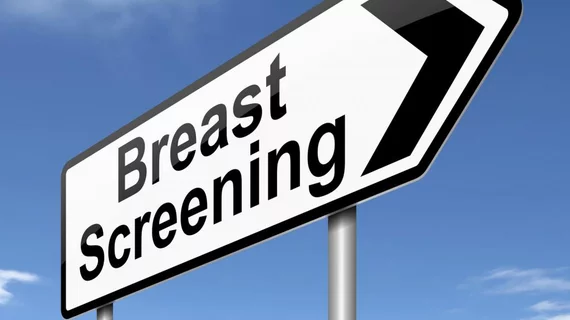False negative results may deter women from future breast cancer screening exams
Receiving a false positive result on a mammogram could negatively affect patients' attitudes about future screening exams.
A new analysis in the Annals of Internal Medicine uncovered reason to believe that women who are recalled for additional imaging or breast biopsy after their initial screening might be deterred from completing their subsequent recommended yearly mammograms. Given that the odds of late-stage cancer diagnosis nearly double when screenings are put off, this effect could have serious unintended consequences, authors of the new paper suggest.
These findings raise concern “about continued participation in routine screening among these women at increased breast cancer risk,” Diana L. Miglioretti, PhD, with the Department of Public Health Sciences at University of California, Davis, and co-authors cautioned.
Researchers sought to determine how screening results impact a woman’s likelihood of remaining compliant with recommendations in the future. To do this, they examined all screening mammograms performed from 2005 to 2017 among women 40 to 73 across 177 breast imaging facilities participating in 6 U.S.-based Breast Cancer Surveillance Consortium registries. This included more than 3.5 million screening mammograms from over 1 million women.
Among all the mammograms, there were a little over 345,000 false positive results. The group found that 77% of women with true negative results returned for their screening at the recommended intervals. Those who ultimately ended up having false positive results were 2% less likely to return for their next screening.
Short-interval follow-up recommendations for these patients reduced the number of women who complied with screening guidelines by another 16%, while those sent for biopsy were 10% less likely to return for their annual mammogram.
Asian and Hispanic/Latinx women had the largest decreases in the probability of returning after a false positive result.
The study’s data were collected before the most recent update to the United States Preventive Services Task Force’s screening recommendations, but around 29% of the women included in the analysis were between 40 and 49 at the time of their mammogram.
Since the number of younger women undergoing annual screening will inevitably increase, it is important to understand the reasons women put their mammograms off after a false positive, the group suggested. This is especially vital for younger women who are affected, as there could be long-term consequences related to foregoing the exam.
The study abstract is available here.

